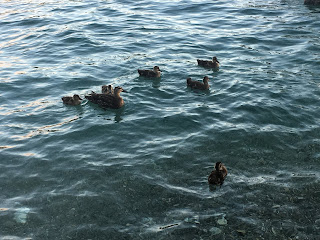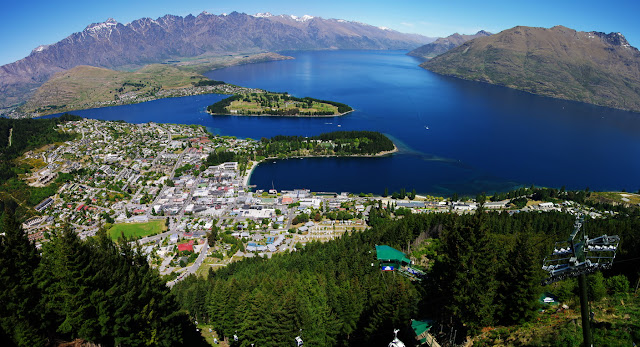The Language of Service
The Language of Service
Despite the fact that coursework here in New Zealand has yet to start, my brain is filled to bursting with fascinating, mind-blowing ideas.
I should start off by mentioning how I know absolutely nothing about Polynesian of Pacific Islander culture, which is why it came as such a surprise to me that there are a ton of different Polynesian cultures with 97 different languages spoken on this beautiful island.
We attended a welcoming banquet last night with some of the best food I’ve ever had in my life (I’m so getting fat here, but I can’t really bring myself to care). After we finished eating, we had guest speakers talk to us about the importance of preserving, honoring, and acknowledging the culture and language of their people.
The main things that stuck out to me were these 4 ideas.
1: Be confident, but be pure
One of the speakers, a twenty-something world traveler named Josh had a beautiful wooden spear that was made for him in exchange for a bow he’d carved. This spear has a face on the end of it is infused with strong spiritual energy, or mana, from the tree that it was carved from. By letting the head of the spear touch the ground, it would be like forcing it to lick the earth, which then must be repaid by you licking the ground for committing the offense to balance it out.
With so many foreign customs and traditions swirling around us on the island, it can be hard to know what to do vs. what not to do. Obviously, the last thing we want to do is offend someone, but if we just shyly go about our way here with our heads down to avoid it altogether, we’re going to miss out on the beauty of those traditions.
Instead, we should be brave enough to ask questions, with the purest intentions of learning and respecting the culture, and try to participate as much as we can. It’s the only way to get the most out of the experience.
2: Ask whose land you are on
 We were asked whose land we live on back home, and I had no idea what to say to that. My first thought was that the government might? But that’s not at all what they meant.
We were asked whose land we live on back home, and I had no idea what to say to that. My first thought was that the government might? But that’s not at all what they meant.
They wanted to know who originally watched over the land, which tribes or spiritual leaders guard the mana infused in the earth we live on.
In New Zealand, almost anyone could tell you which culture or tribe has the land you are on wherever you go. I couldn’t tell you a thing about the United States. The idea of ownership is vitally important because it preserves the history and sacred traditions that go along with it. It allows us to pay respect to that ancient ownership, rather than go about our lives thinking we alone are stewards of the spaces between our picket fences.
Deep, right? Well, it gets better.
3: Fake patriarchy
Feminism is a touchy issue everywhere in the world these days. As a woman, I feel like the older I get, the more frustrated I become with the stories popping up in my news feed about this topic.
Again, my limited knowledge of Polynesian and Native culture had me thinking that native tribes uphold patriarchal practices.
Apparently, I was way off there.
Josh, the most inspiring and poetic human being I’ve met in my life, described these incredible traditions and customs and dances that were central in the many cultures he’s been around the world to learn from.
He said this:
 Women go out into the world, given the ultimate power of creation, needing to learn of their power for themselves. Men go out into the world to learn how to respect that power and to love and honor them for it.
Women go out into the world, given the ultimate power of creation, needing to learn of their power for themselves. Men go out into the world to learn how to respect that power and to love and honor them for it.
I can get on board with that.
Unfortunately, this leads to confusion about patriarchal practices in indigenous cultures, with men holding positions of providing, fighting, hunting, and leading, where women are more spiritual leaders who watch over the family.
Sound familiar, any of my members of the Church of Jesus Christ of Latter-day Saints?
4. Language of service
Brace yourself for some true poetry here, folks.
As the light began to fade and the blue sky was streaked with pink clouds reflecting the setting sun, Josh instructed us to look around at the truly magnificent trees that surrounded us in the serene park.
He told us that trees speak the purest language: the language of service.
They live and breathe to give us life and breath. They provide us with shelter. They reach for the sun as they grow, light seeping into their roots so that when they die, they can give back that light in the form of fire. The language of trees is a universal one, as anywhere you go, every single culture will know that fire is made from firewood, which comes as a gift from the trees.
What a poetic perspective.
These speakers are more spiritually tuned-in than any other people I have ever met. And their focus now is on decolonization, on reclaiming their ancient traditions and cultures and names. As civilizations all over the world are slowly conforming to American customs, the poetry of tribal culture is threatening to become lost to time.
 The American education system dominates the world, with our Ivy League schools setting the standard for what a proper education should be. (Think about it, have you ever heard of any prestigious universities in the southern hemisphere?)
The American education system dominates the world, with our Ivy League schools setting the standard for what a proper education should be. (Think about it, have you ever heard of any prestigious universities in the southern hemisphere?)
English names and slang are replacing the beautiful island languages, probably because we can’t pronounce them and don’t understand the significance of names.
So in a nutshell, ignorance is a problem. Asking questions is the solution. I can’t do anything about colonization or loss of culture, but I can be aware of it and be respectful of the indigenous cultures all around me, both here and back in the states.
This place is beautiful, these people are inspiring, and I am so grateful to be here.






Comments
Post a Comment